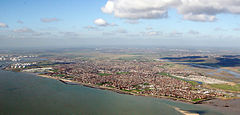Tucked away in national newspapers last week, making no waves and no headlines was the news that :
Thousands of old man and women have died unexpectedly during the past year, driving a rise in overall death rates which is baffling public health chiefs.
It was based on a Government report which began :
We have observed higher than expected provisional counts of deaths for the year 2012; especially in persons aged over 80.
It went on to say that :
* 'female mortality over 85 increased in these published tables by 5% in 2012, while male mortality over 85 increased by 3%'.
* 'the pattern of deaths so far in 2013 had indicated, if anything, a further deterioration in mortality compared with that observed over the corresponding period in 2012.'
* 'cumulated deaths per week are averaging around 10,500 which is around six hundred more than would be expected'.
* suffer from increased anxiety as a result of knowing they might have to move home or even have no home in a time of crisis in the funding of a large number of care homes for old people.
* get left a little longer in overstretched Accident and Emergency Services in hospitals.
* are most neglected when the carer visiting them has only 15 minutes when they used to have 30.
My post on Monday, 13 May 2013 :
Britain is no country for old men who need help with dressing and eating
http://britainisnocountryforoldmen.blogspot.co.uk/2013/05/britain-is-no-country-for-old-men-who.html
Thousands of old man and women have died unexpectedly during the past year, driving a rise in overall death rates which is baffling public health chiefs.
It was based on a Government report which began :
We have observed higher than expected provisional counts of deaths for the year 2012; especially in persons aged over 80.
It went on to say that :
* 'female mortality over 85 increased in these published tables by 5% in 2012, while male mortality over 85 increased by 3%'.
* 'the pattern of deaths so far in 2013 had indicated, if anything, a further deterioration in mortality compared with that observed over the corresponding period in 2012.'
* 'cumulated deaths per week are averaging around 10,500 which is around six hundred more than would be expected'.
Speaking to the 'Health Service Journal', Professor of Human Geography, University of Sheffield, Danny Dorling said
“Elevated mortality amongst the elderly is often about people dying two or five years earlier than would be expected given recent rates. It is possible that cuts or freezes to services have a particular bad effect on this group - even cuts and freezes that might appear very minor - because the group is so vulnerable."
He went on to outline possible causes for this increase in the number of deaths of old man and women arising from the fact that they are the ones who :
* get left a little longer in overstretched Accident and Emergency Services in hospitals.
My post on Monday, 13 May 2013 :
Britain is no country for old men who need help with dressing and eating
http://britainisnocountryforoldmen.blogspot.co.uk/2013/05/britain-is-no-country-for-old-men-who.html
.jpg)
.jpg)

.jpg)
.jpg)
.jpg)
.jpg)











































